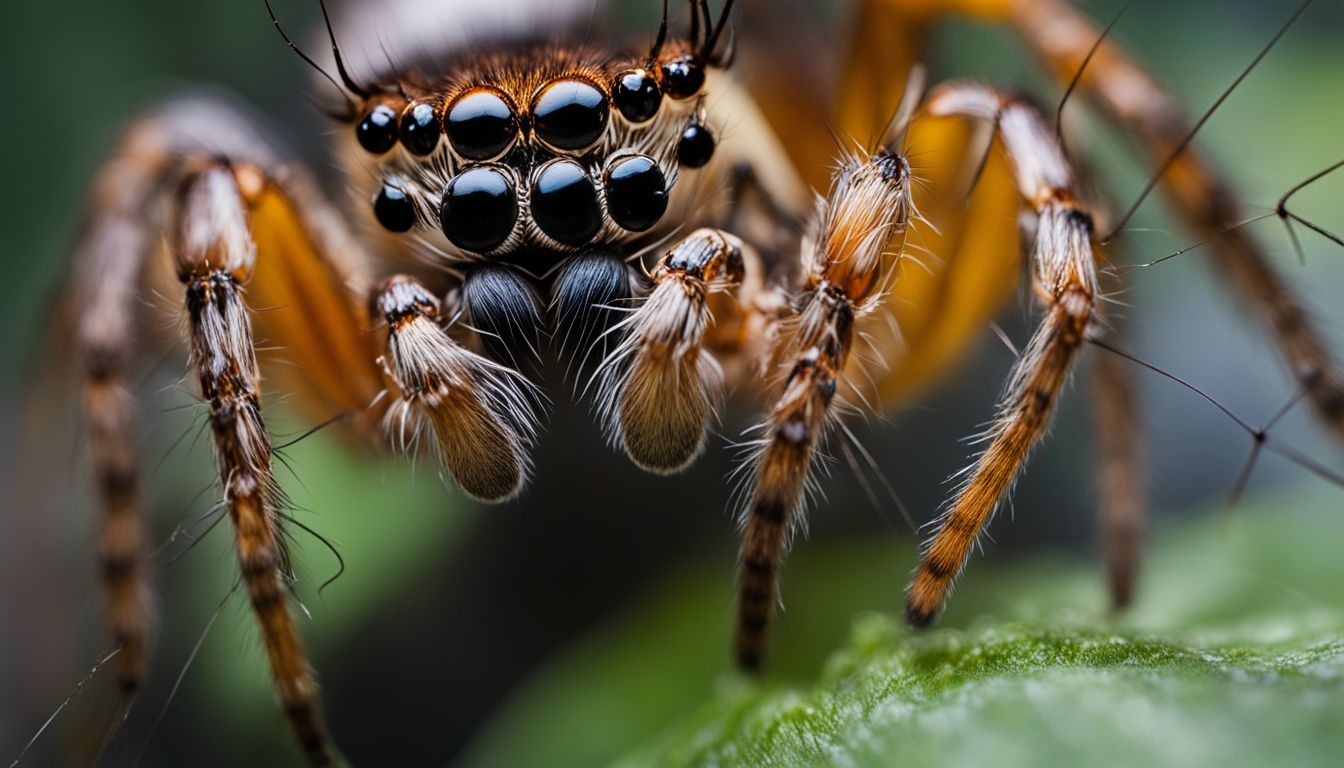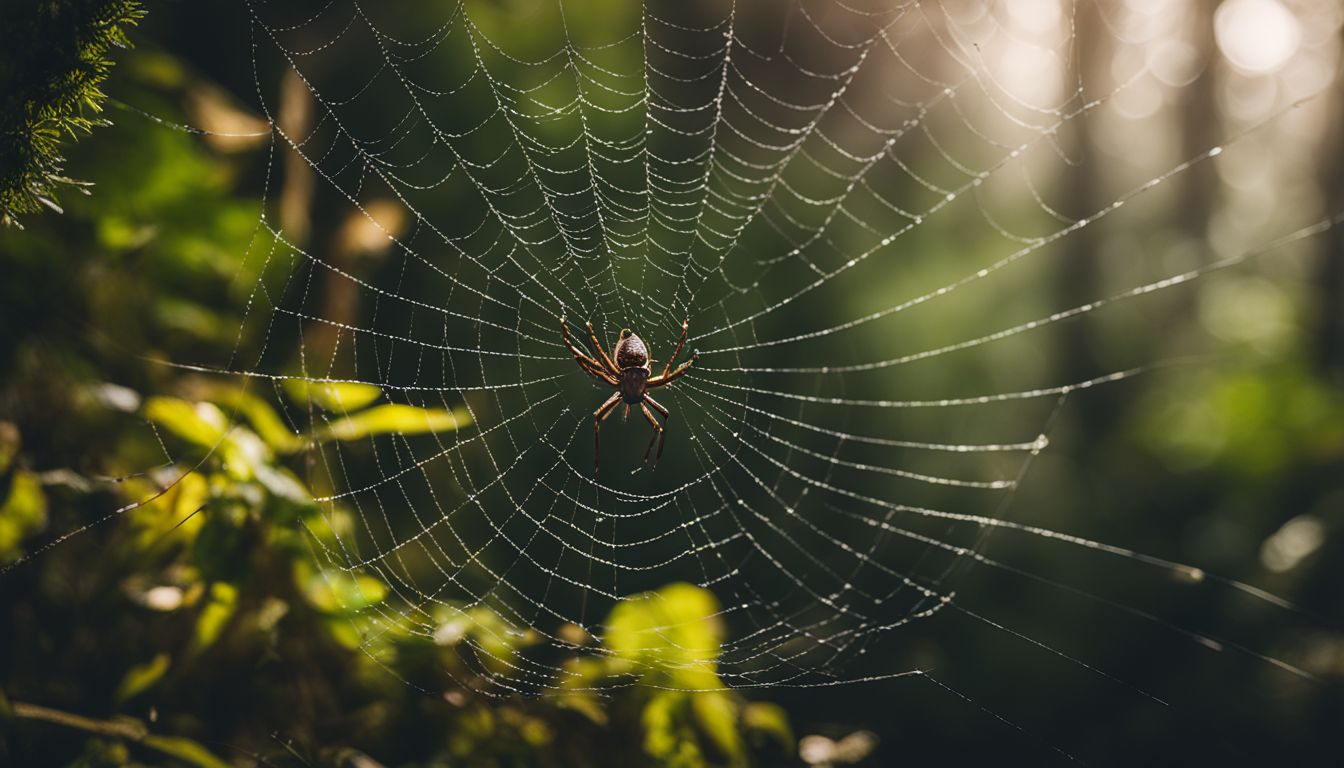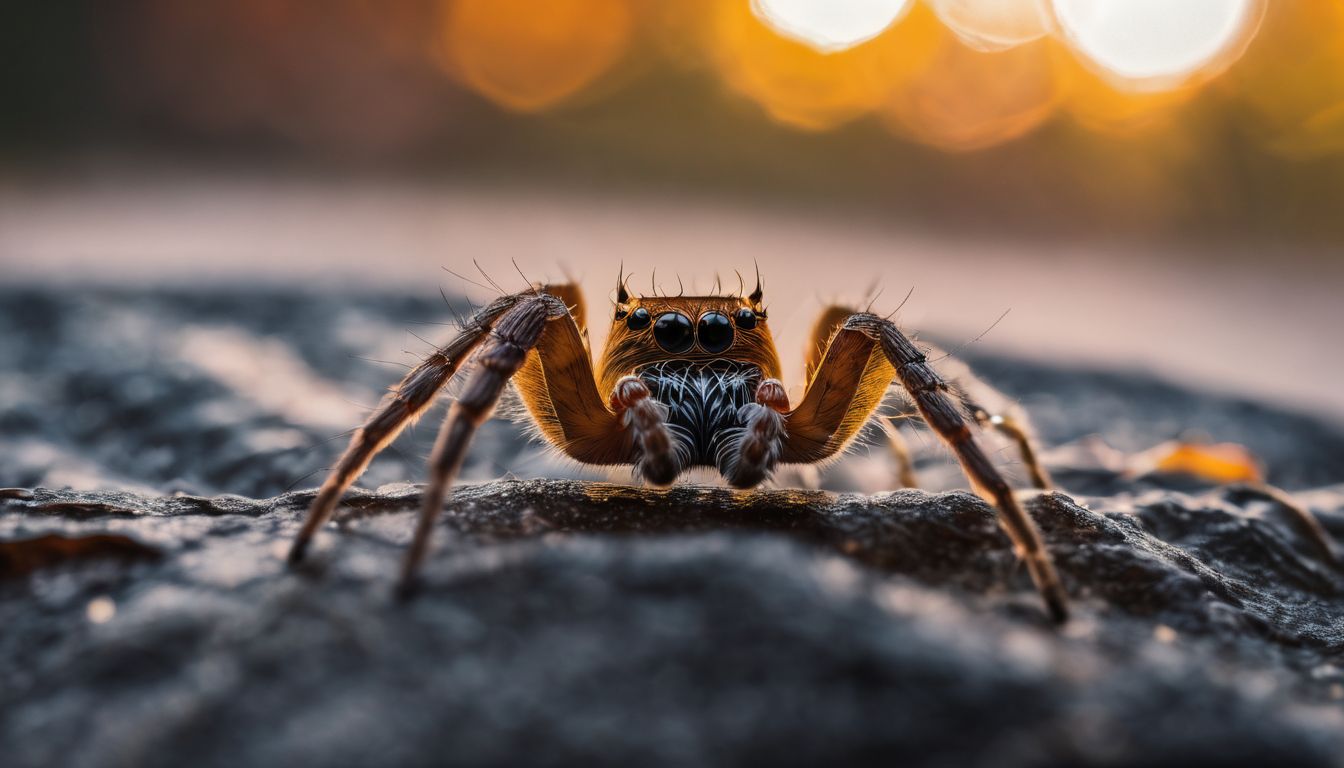Have you ever wondered if spiders can pick up on the scents around them? Contrary to popular belief, these eight-legged creatures have a sophisticated sense of smell. In this post, we’ll delve into the world of spider senses and discover how they use their olfactory abilities to navigate their environments.
Get ready to uncover some surprising spider secrets!
Key Takeaways
- Spiders can smell using tiny hairs called chemoreceptors on their legs and pedipalps, helping them find food, avoid predators, and communicate with other spiders using chemical messages.
- They use their sense of smell for prey detection, predator avoidance, and social communication through pheromones, playing a crucial role in survival and interactions within the spider community.
- Their olfactory capability differs from that of other insects; they rely on chemoreceptors across their body for smelling mechanisms as opposed to antennae. This distinction shapes their hunting strategies and color preferences differently from other insects.
Unveiling the Mystery: Do Spiders Have a Sense of Smell?

Spiders really can smell! They don’t have noses like we do, but they use tiny hairs called chemoreceptors all over their bodies to sniff out smells. These special hairs let them know where tasty bugs and other things they need are hiding.
Spiders’ legs and pedipalps (those small parts near their mouth) are extra good at smelling.
They wave these leg parts around to catch whiffs of scents in the air or on objects. This sense helps spiders survive by finding food, avoiding enemies, and chatting with other spiders using chemical messages called pheromones.
Next up, let’s dive into how spider anatomy supports their ability to smell.
Anatomy of Spider Smell

Spiders have specialized olfactory receptors and sensory organs, such as their legs and pedipalps, that enable them to detect odors in their environment. These receptors play a crucial role in the spider’s ability to find prey, avoid predators, and communicate with others of their species.
Olfactory Receptors and Sensory Organs
Spiders have amazing smell abilities thanks to special parts on their bodies. These parts are like tiny, hollow hairs at the ends of their legs and things called pedipalps. They pick up smells from the air around them, which helps them learn about their world.
These smell sensors are really good at catching scents called pheromones. Pheromones are like secret messages that spiders and other animals use to talk without words. They can tell a spider if there’s a friend nearby or warn about danger.
Spiders also sense smells with body hair and spines that catch odors very well. This skill is super important for finding food, staying safe, and talking to other spiders without making a sound!
The Role of Smell in Spider Behavior
Spiders use their sense of smell to detect prey and potential predators, as well as to communicate with each other through chemical signals. This olfactory capability plays a crucial role in the survival and social interactions of spiders in their environment.
Prey Detection and Attraction
Spiders have a cool way of figuring out where their next meal is coming from. They can taste and smell what’s around them with special sensors on their legs. This helps them find bugs to eat and even choose mates.
For example, jumping spiders change who they attack based on smells in the air, which makes odor super important for catching prey.
Some spiders like sweet things like nectar from flowers. They use their sense of taste and smell to find these sugary snacks. Also, experiments show that spiders are picky about what they eat by using smells to tell different bugs apart before going for the grab.
Plus, they seem to really like certain smells; some go toward a bit of alcohol in the air while staying away if there’s too much.
Predator Awareness and Avoidance
Having discussed how spiders use their sense of smell to detect and capture prey, it’s also important to understand that this olfactory ability plays a crucial role in their awareness and avoidance of predators.
Spiders can recognize sensory cues associated with potential threats, allowing them to distinguish between dangerous and harmless stimuli. Additionally, they may alter their foraging behavior in response to defensive odors from certain insects, demonstrating how their sense of smell contributes to predator avoidance strategies.
This reliance on olfactory information sheds light on the significance of chemical communication in the survival and hunting techniques of spiders.
By recognizing sensory cues related to potential dangers and altering foraging behavior in response to defensive odors, spiders showcase an intricate way of using their sense of smell for predator awareness and avoidance.
Chemical Communication and Social Signals
Spiders use chemical signals to communicate with each other. They release pheromones that help them find a mate and mark their territory. These chemical messages play a role in sexual selection, influencing which spiders are chosen as mates.
Male spiders can use these chemical signals to tell if a female spider is already mated or not. This helps them make better choices when looking for a partner. Additionally, the garden cross spider relies on pheromone communication for interactions between sexes and within the same sex.
So, next time you see a spider spinning its web, remember that there might be an invisible language of chemicals at play!
Comparing Spider Smell to Other Insects
When it comes to the sense of smell, spiders stand out in the arthropod world with some unique characteristics. Their methods and capabilities differ significantly from those of other insects. Below is a comparison in an HTML table format that highlights these differences for a novice audience.
| Aspect | Spiders | Other Insects |
|---|---|---|
| Sensory Organs | Use fine hairs on legs to detect odors | Often have antennae with sensory receptors for smell |
| Smelling Mechanism | Chemoreceptors distributed across body | Primarily use antennae as specialized olfactory organs |
| Role of Smell | Prey detection, predator avoidance, social signals | Pheromone communication, mating, finding food |
| Behavioral Responses | Smell can influence hunting strategies and color preferences | Guides complex behaviors like swarming, nesting, and colony maintenance |
| Defensive Strategies | Do not generally use smell for defense | Some species release odors as a defense mechanism |
These highlights show that while spiders and other insects both rely on smell, they employ different tools and behaviors shaped by their evolutionary paths.
Common Misconceptions about Spiders and Smell
Despite popular beliefs, spiders cannot smell human fear or dislike specific scents, but they do have a well-developed olfactory sense for detecting prey and avoiding predators. Curious to learn more about the fascinating world of spider sensory capabilities? Keep reading to unravel the mystery!
Can Spiders Smell Human Fear?
Spiders can detect human fear through chemical signals. When humans feel scared, they release specific chemicals that spiders can smell. This ability helps spiders react to potential danger and adjust their behavior accordingly.
Spiders’ excellent sense of smell allows them to pick up on various scents, including those emitted by humans when they’re afraid. This enables the spiders to be aware of potential threats in their environment and respond appropriately.
Do Spiders Dislike Certain Scents?
Spiders may not like certain scents, such as vinegar, mint, cayenne pepper, citrus, cinnamon, and diatomaceous earth. Some sources suggest that spiders also dislike strong scents in general, so oils like lemon, cinnamon, or tea tree oil may work as repellents too.
However, there is no evidence to support the idea that spiders can even smell various natural plant products that are alleged to repel them. Despite these claims about specific scents repelling spiders, it’s important to remember that scientific research on this topic is still ongoing.
Next Topic: Additional Fascinating Spider Features (Related to “Do Spiders Have Teeth?” article)
Additional Fascinating Spider Features (Related to “Do Spiders Have Teeth?” article)
Some spiders have a unique way of protecting themselves. They can mimic the vibrations of insects caught in their webs, pretending to be prey to attract actual prey.
Spiders are also remarkably skilled at building traps. Some types of spiders build decoy spider shapes into their webs to deter predators like birds and wasps from attacking their real bodies.
Conclusion
In conclusion, spiders indeed have a sense of smell. They use it to detect scents in the air and on surfaces as they navigate their environment. This ability plays a crucial role in their survival, from finding mates to locating prey and avoiding predators.
Understanding spider sensory capabilities sheds light on the fascinating world of these remarkable creatures.
Discover more intriguing facts about our eight-legged friends by exploring whether spiders have teeth as well.
FAQs
1. Can spiders smell things like we do?
Spiders don’t smell with a nose, but they use their legs to pick up chemical smells from the air or surfaces. This is called chemoreception.
2. What kind of spiders use smell to find food?
The Evarcha culicivora spider can smell and hunt down Anopheles mosquitoes as prey by sensing environmental cues.
3. Do all spiders rely on smelling for hunting?
No, some spiders might depend more on seeing than smelling. They have good eyes which help them notice visual cues in their environment.
4. Can a spider know if another animal marks its territory nearby?
Yes, because many animals leave a scent mark, just like how ants and bees let other insects know where they’ve been.
5. Besides finding food, what else might a spider use its sense of ‘smell’ for?
Spiders can tell if there are predators or prey around using chemoreception; it helps them stay safe and also find targets easier.




